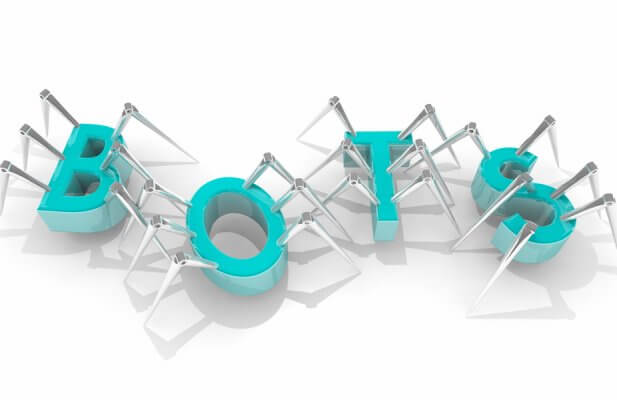
Have you checked the speed of your search results lately? You get results in just .53 seconds, .49 seconds, .67 seconds….the speed of search engine results is truly amazing when you think about the sheer enormity of the content on the internet. How is all of that information accessed so quickly? Doing all the heavy lifting behind satisfying search engine results are trusty web crawlers. Keep reading to find out what these spidery programs do and why it matters to you.
What is a web crawler?
There are a couple of common words used for web crawlers: web spider, automatic indexer, web robot or just plain crawler. All of those terms are referring to the same type of computer program that methodically browses internet pages to find content that matches search requests. Web crawlers also create a copy of all the pages visited for a quicker search result.
Web crawlers go through every page of every website looking for relevant keywords. They also follow any links that are included on pages. Pages that have refreshed content or have specific keywords are going to show up more towards the top of search results in a search engine.
Here is another way to think about it:
The internet is a gigantic library. A web crawler is a person constantly reading books and making note of what information is in them. You decide to visit the library one day because you have a question. Instead of searching blindly through every book until you randomly happen upon your answer (using a search engine). Before you even came to ask the question, the web crawlers have been constantly working to index all the information. They know exactly where your answer is and deliver it up to you in 0.73 seconds.
Web crawler vs. search engine?
A web crawler is basically a search engine, except that it arranges results in decreasing order of relevance. Web crawlers are mainly used for the grunt work of searching and indexing pages while search engines display the final results. The strength behind a good search engine is the algorithm of its web crawlers. Algorithm refers to a set of rules that a program uses to complete a task. The better and more fine-tuned the algorithm is, the more accurate your search results will be. This is why there are different search engines and some are better than others.
How does it work?
Web crawlers start by scanning very popular pages and heavy traffic servers. From there, it will follow every link on those popular pages to other pages and keep repeating the process. That branching out method allows web crawlers to cover a lot of ground. Search engines have multiple web crawlers working at one time to generate the fast results that searchers expect.
Web crawlers are constantly building lists of words and makes note of where they were found. They then build an index of all of those keywords based on its own system of weighting what is most important. It encodes that data to save space and stores it for later access.
Web crawlers can scan pages in different ways. For example, Google’s web crawlers look at two things on pages: the words on the page and where those words are (title, subtitle meta tags etc.) while ignoring common words like “a”, “an” and “the”. When words are in titles, subtitles and other special spots, more weight is given to those words. The technique of the web crawler depends on the goal. To get faster results, some web crawlers pick up on words in titles, sub-headings and links only, plus the top 100 most common words on the page. This saves time from reading every single word. On the other hand, some web crawlers read every single word on the page, including insignificant words like “a”, “an” and “the”. Their goal is give a complete picture and bring lesser known, or poorly formatted, sites into the light of searches.
Other uses of web crawlers
Google, Yahoo and all of the other big search engines are constantly working on developing and tweaking their web crawlers, but anyone can create and use their own. Besides the large function for search engines, you can use web crawlers on your own website to perform tasks and check for accuracy. You can also use them to search other sites for information that you want to capture and store without manually reading and recording it yourself.
Web crawlers are the workhorses of search engines, and without them, we would be resigned to shuffle hopelessly through the stacks and stacks of virtual pages on the internet. Successful websites please the web crawlers by having pertinent keywords in titles, subtitles, meta tags and consistently throughout their pages. As with everything else in life, understanding what is going on behind the scenes on the internet will only further you in your website endeavors.


Comments (0)